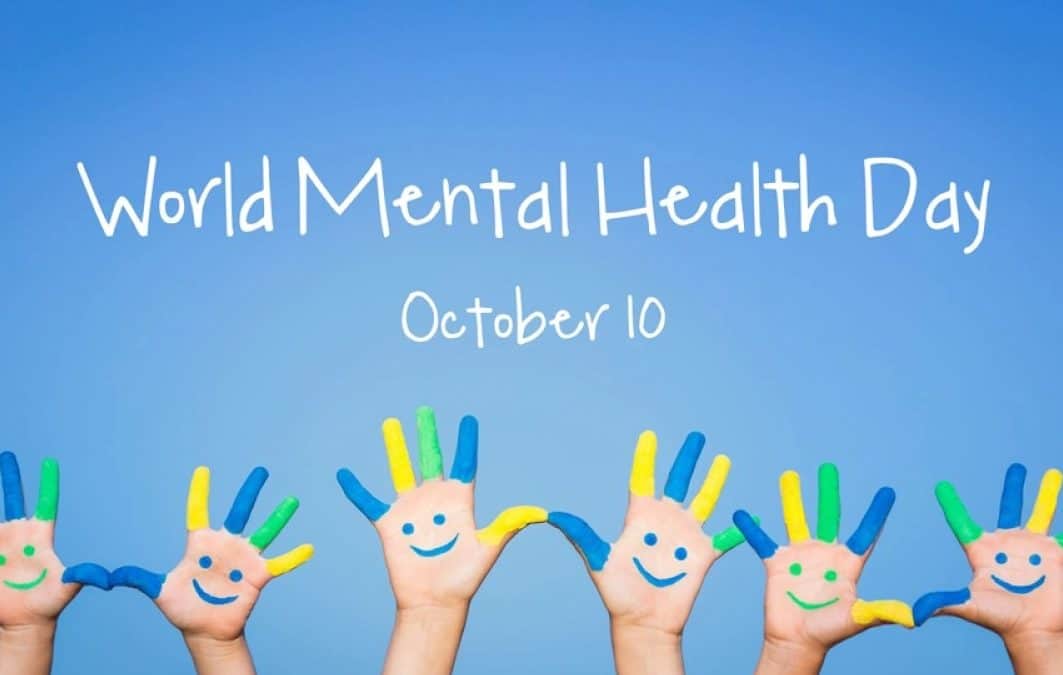Today is World Mental Health Day
1 in 4 people in England experience mental health problems each year. This may range from anxiety and depression which affect a lot of people, to less common problems such as bipolar disorder, PTSD and eating disorders, for example.
Mental health can impact your ability to think clearly and process information, it can affect how you feel and manage your emotions and also change your behaviour.
Who can experience a mental health problem?
Anyone can experience a mental health problem and there are many different reasons and causes for this. Often it can also be due to a combination of things.
This might include:
- Childhood trauma or abuse
- Discrimination
- Bullying
- Bereavement
- Relationship breakdown
- Homelessness or housing difficulties
- Financial problems
- Unemployment or being unhappy at work.
- Managing a health condition / injury.
- Domestic violence
- Prolonged periods of stress.
- Social isolation.
Mental Health and Cancer
A cancer diagnosis can affect an individual’s mental health at any time from diagnosis, during treatment and also after treatment has finished. It’s normal to experience a range of emotions including shock, fear, anxiety, a sense of loss, anger, and depression. Many cancer patients also talk about experiencing survivor’s guilt. Some have spoken about the expectation to be back to normal after treatment has finished, but the reality is that cancer can have a long term impact on mental health for many people.
What helps to improve mental health problems?
Speak to your GP if you are experiencing mental health problems. They can discuss the right treatment option for you which may include medication or talking therapies.
There are also some self-care tips you can use to help.
The 5 steps to wellbeing recommend:
- Get active- Exercise improves physical wellbeing but also releases endorphins to make you feel good. Walking or spending time in nature can also have a soothing effect.
- Notice- Take time to notice things around you, find things to be grateful for or practise mindfulness throughout your day.
- Learn – Try something new such as taking a course or trying a new hobby.
- Connect with people around you. Talk to friends/ colleagues and spend time with loved ones.
- Give – Do something nice for someone, arrange a surprise, make a donation or volunteer your time.
What are we doing at Youth Cancer Trust to support our guest’s mental health?
- Weekly relaxation class online open to all guests.
- Weekly Mindful Moment posts including meditations, reflections and mindful content.
- Staff available to support guests 1:1, to talk through any problems they have, and to identify and refer to specialist mental health, or other services, when required.
- Secure network of young people to engage with to prevent social isolation and encourage peer support.
- Staff plan holiday and online activities in line with the 5 steps to wellbeing: Connect, be active, learn new skills, give to others, be present.
Where can I get help?
Speak to your GP if you are experiencing mental health problems and need help. There are also a number of online resources, charities and services available.
Samaritans
Whatever you’re going through, a Samaritan will face it with you. We’re here 24 hours a day, 365 days a year. Call 116 123 for free
Mind
We’re Mind, the mental health charity. We’re here to make sure no one has to face a mental health problem alone. https://www.mind.org.uk/
CALM
We’re the Campaign Against Living Miserably (CALM) and we’re taking a stand against suicide. https://www.thecalmzone.net/
Young Minds
We’re fighting for a world where no young person feels alone with their mental health. https://www.youngminds.org.uk/
Cancer Research UK
Whether you are someone with cancer or a carer for someone with cancer, we want you to know that it is common to struggle with your mental health when dealing with a cancer diagnosis.
https://www.cancerresearchuk.org/about-cancer/coping/mental-health-cancer
Macmillan
It is common to have many different emotions when you have cancer. There is no right or wrong way to feel.
